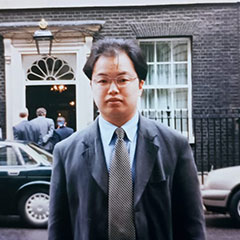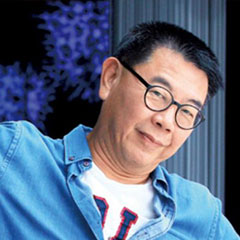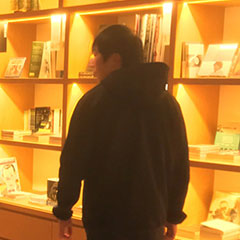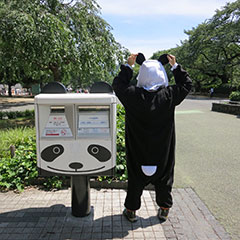11/11/2019
【歌詞背後】 One Tin Soldier
歌手:The Original Caste 樂隊
作曲: Brian Potter & Dennis Earle Lambert
填詞: Brian Potter & Dennis Earle Lambert
創作/發行:1969
舊人舊事惹愁思,唯有舊歌不厭百回聽。
《One Tin Soldier》是六十年代作品,首次傾聽卻是1977年Chelsia Chan & Sam Hui(陳秋霞及許冠傑)的版本。當年不過是一個「Form One仔」,對於歌詞背後的理解相當有限,偏偏被那蕩氣迴腸、明快激昂的曲調節奏,深深吸引。

追本溯源,原唱是加拿大樂隊The Original Caste,1971年電影《Billy Jack》以此為主題曲,由美國樂隊Coven 主音Jinx Dawson翻唱。
中外版本何其多?先試聽這三個版本,看哪一個最合你口胃!
2. Coven
此曲用詞淺白,幾乎句句押韻,“ago/below, stone/own, friend/end, day/away, hill/kill, share/there, sword/reward, red/said” ⋯⋯邊唱邊唸,印象深刻,不經意,一唱就是四十年。
One Tin Soldier
Listen children to a story
That was written long ago
About a kingdom on a mountain
And the valley folk below
On the mountain was a treasure
Buried deep beneath a stone
And the valley people swore
They'd have it for their very own
Go ahead and hate your neighbour
Go ahead and cheat a friend
Do it in the name of heaven
Justify it in the end
There won't be any trumpets blowing
Come the judgement day
On the bloody morning after
One tin soldier rides away
So the people of the valley
Sent a message up the hill
Asking for the buried treasure
Tons of gold for which they'd kill
Came an answer from the kingdom
"With our brothers we will share
All the secrets of our mountain
All the riches buried there"
Now the valley cried with anger
"Mount your horses, draw your sword"
And they killed the mountain people
So they won their just reward
Now they stood beside the treasure
On the mountain dark and red
Turned the stone and looked beneath it
"Peace on earth" was all it said
Go ahead and hate your neighbour
Go ahead and cheat a friend
Do it in the name of heaven
You can justify it in the end
There won't be any trumpets blowing
Come the judgement day
On the bloody morning after
One tin soldier rides away
Go ahead and hate your neighbour
Go ahead and cheat a friend
Do it in the name of heaven
You can justify it in the end
There won't be any trumpets blowing
Come the judgement day
On the bloody morning after
One tin soldier rides away

那年代,聽歌學英文,算是各式「零消費娛樂」中的表表者。窮風流,原來自幼練就。
歌曲說了一個這樣的故事:
「很久很久以前,傳說山上有一王國,在一塊大石下埋了寶藏,山下村民信誓旦旦,認為那寶藏自古以來已是屬於他們的,要求上山取回, 否則不惜敵視鄰里、出賣朋友,甚至大開殺界。出發前,更以上帝之名宣讀誓詞,確證此乃正義之戰,出師有名,無懼面對最後審判日。
山上的人不慌不忙不徐不疾,堅持那寶藏只會跟志同道合、理念一致的弟兄姐妹分享。
山下村民老羞成怒,咆哮激動,劍拔弩張,一下子衝上山去,把王國的人民盡數殺絕。
在那血洗的清晨,山下村民終於找到寶藏,在那血跡斑斑的大石被掀起的一剎那,他們發現,寶藏內沒有黃金財富,只有『世界和平』四個字。」
要了解每項創作背後的真義,創作人處身的時代背景最是關鍵。

《One Tin Soldier》其實是一首反戰歌曲,時值越南戰爭(1955-1975年),美國參與其中,一打就是十多年。
表面看,這不過是一場南、北越之戰,實則是美國和蘇聯的角力。美國派遣了250萬軍人到越南,其中50多萬人參戰,30多萬人受傷、5萬多人死亡、損失4,000多架飛機及直升機,耗資4,000多億美元軍費,結果卻是兵敗如山倒。
越戰本為內戰,美國介入他國領土,出師無名,難以取得國內人民支持;且長期出戰,導致國力衰退,美軍多留一天,傷亡數字又多一點,美國人反戰態度也日甚一日。1975年,美國終於撤出越南。
《One Tin Soldier》歌詞警世,倡議和平、共享,切忌利慾薰心,財富權勢,過眼雲煙,憎恨、欺騙、屠殺,值得嗎?事到臨頭,不過白忙一場。
Tin可解作金屬錫器,One Tin Soldier引申開來,就是「鐵石心腸」的軍人。一顆無血無肉、不為世事世情所動的硬心腸,方可狠下殺手,片甲不留。
《經濟通》所刊的署名及/或不署名文章,相關內容屬作者個人意見,並不代表《經濟通》立場,《經濟通》所扮演的角色是提供一個自由言論平台。
【與拍賣官看藝術】畢加索的市場潛能有多強?亞洲收藏家如何從新角度鑑賞?► 即睇































































































































































